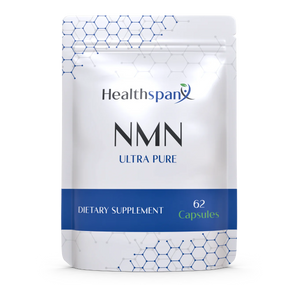How Much NMN in Broccoli? Broccoli’s Surprising Longevity Link
This question is gaining traction among health-conscious adults looking for natural ways to support aging. Broccoli is one of the most nutrient-dense vegetables on the planet, but does it really offer meaningful amounts of NMN?
As the quest for longevity accelerates, more people are turning to natural sources of nicotinamide mononucleotide (NMN) to support healthy aging. NMN is a direct precursor to NAD+ (nicotinamide adenine dinucleotide), a molecule that powers our cells and declines significantly with age.
So, let us explore the real NMN content in broccoli, how it compares to supplements, and whether broccoli alone is enough to support NAD+ levels.
What Is NMN And Why Does It Matter?
NMN (nicotinamide mononucleotide) is a molecule naturally produced in the body and found in small amounts in certain foods.
It plays a crucial role in synthesizing NAD+, which is vital for energy metabolism. As we age, NAD+ levels drop by over 50%, contributing to fatigue, slower metabolism, and cognitive decline.
Boosting NMN levels can help restore NAD+ concentrations. That is why NMN is at the center of aging research.
How Much NMN Is In Broccoli?
According to recent analyses of NMN content in foods, broccoli contains between 0.25 mg and 1.12 mg of NMN per 100 grams, depending on the variety, harvest time, and freshness. This range makes broccoli one of the richer vegetable sources of NMN, surpassed only by foods like edamame and avocado.
How Much Broccoli Would You Need To Eat?
If you want to take at least 250 mg of NMN per day, you would need to eat 22–100 kg of broccoli per day.
Clearly, this is not a practical strategy. Even if you love broccoli, the fiber load alone would cause digestive issues.
That is why, while broccoli is a healthy addition to your diet, it cannot provide therapeutic NMN levels through food alone.
Can Broccoli Boost NAD+ On Its Own?
Not effectively. While broccoli has nutritional synergy, the NMN concentration is too low to meaningfully raise NAD+ levels in the bloodstream.
Broccoli helps, but supplementation might be necessary to bridge the gap between natural intake and therapeutic effect.
Why Supplements Are Still Necessary If There's NMN In Broccoli
If your goal is to increase NAD+ levels for longevity, metabolism, or energy, you will need more than what broccoli NMN content offers.
Supplements like Ultra Pure NMN™ deliver over 99% purity and allow you to precisely control your daily intake. You can combine this with broccoli in your meals to get the best of both worlds—targeted supplementation and whole-food nutrition.
Final Thoughts: How Much NMN In Broccoli?
While broccoli is one of the few vegetables that contain measurable amounts of NMN, you would need to eat dozens of pounds daily to match clinical NMN doses. The NMN in broccoli can support your baseline nutrition, but supplements are necessary to boost NAD+ to optimal levels for anti-aging benefits.
If you are serious about supporting your mitochondrial health and longevity, consider adding Ultra Pure NMN™ to your routine.
References
-
Shade C. (2020). The Science Behind NMN-A Stable, Reliable NAD+Activator and Anti-Aging Molecule. Integrative medicine (Encinitas, Calif.), 19(1), 12–14.
-
McReynolds, M. R., Chellappa, K., & Baur, J. A. (2020). Age-related NAD+ decline. Experimental gerontology, 134, 110888. Advance online publication. https://doi.org/10.1016/j.exger.2020.110888
- Poddar, S. K., Sifat, A. E., Haque, S., Nahid, N. A., Chowdhury, S., & Mehedi, I. (2019). Nicotinamide Mononucleotide: Exploration of Diverse Therapeutic Applications of a Potential Molecule. Biomolecules, 9(1), 34. https://doi.org/10.3390/biom9010034


